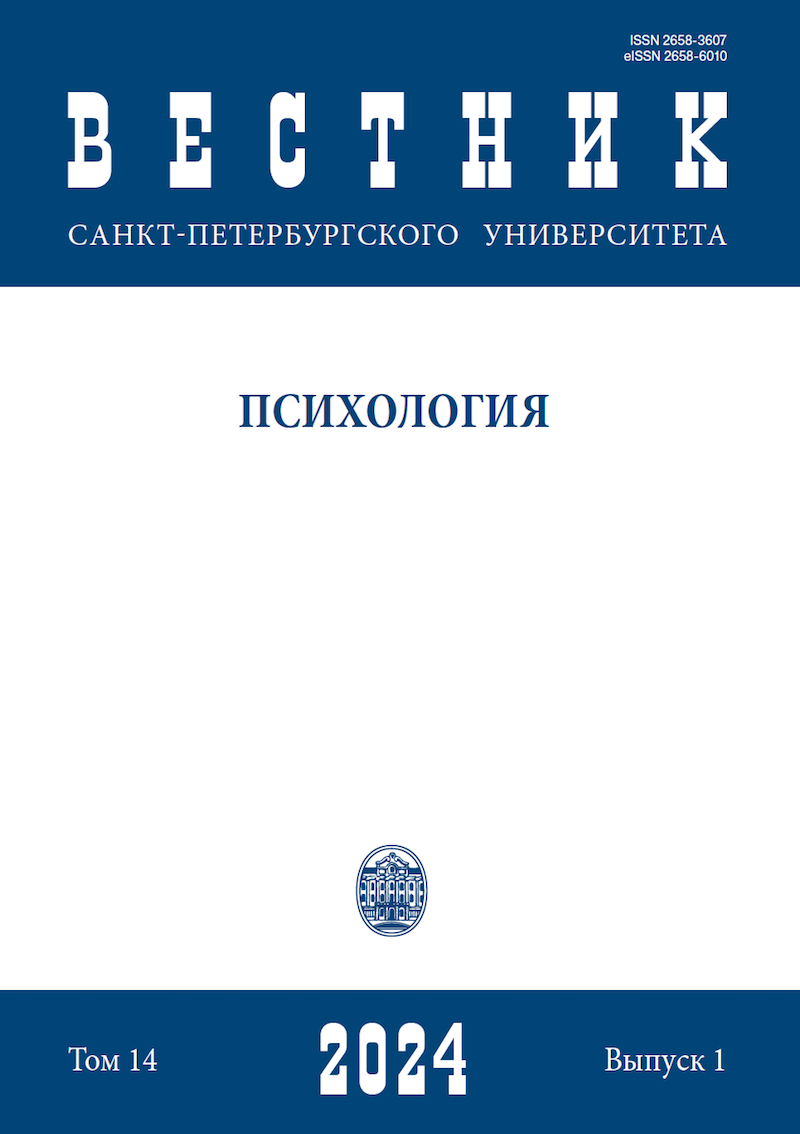Development of the “Construction of aging strategies” questionnaire
DOI:
https://doi.org/10.21638/spbu16.2024.110Abstract
The work describes the development and psychometric evaluation of a tool aimed at assessing the strategies used to promote successful aging. In the context of increasing life expectancy and the number of older people in the general population, the issue of maintaining and improving the quality of life of older people is particularly acute. Science has accumulated a large amount of data on the mechanisms and factors influencing aging. Moreover, these factors can be modeled by the person himself. However, there are no tools that would allow us to assess these mechanisms and the frequency of their use in a one’s life, both current and retrospectively. The study participants included 170 adults aged 40–75 years. Based on theoretical analysis, 22 strategies were formulated, each of which was assessed on a 5-point scale. To check the convergent validity, the Health-Promoting Lifestyle Profile questionnaire, the K.Riff Psychological Well-Being Scale, the Aging Perception Questionnaire, and questions from a demographic survey were used. As a result of exploratory factor analysis, four scales were identified: “Strategies for maintaining health”, “Metacognitive strategies”, “Strategies for self-development” and “Generative strategies”. Scale reliability and confirmatory analysis confirmed the suitability of the resulting instrument as well as its consistency with the empirical data. Analysis of convergent validity showed that the selected scales were associated with indicators of a healthy lifestyle, psychological well-being, positive ideas about aging and the desire to change something in one’s life for the sake of a prosperous old age. The results obtained can be used both for scientific study of the mechanisms of futurization of aging, and for practical work on assessing resources for the formation of aging and building individual aging trajectories.
Keywords:
construction of aging strategies, futurization of aging, aging, effective aging, validization, healthy aging
Downloads
References
References
Downloads
Published
How to Cite
Issue
Section
License
Articles of "Vestnik of Saint Petersburg University. Psychology" are open access distributed under the terms of the License Agreement with Saint Petersburg State University, which permits to the authors unrestricted distribution and self-archiving free of charge.




